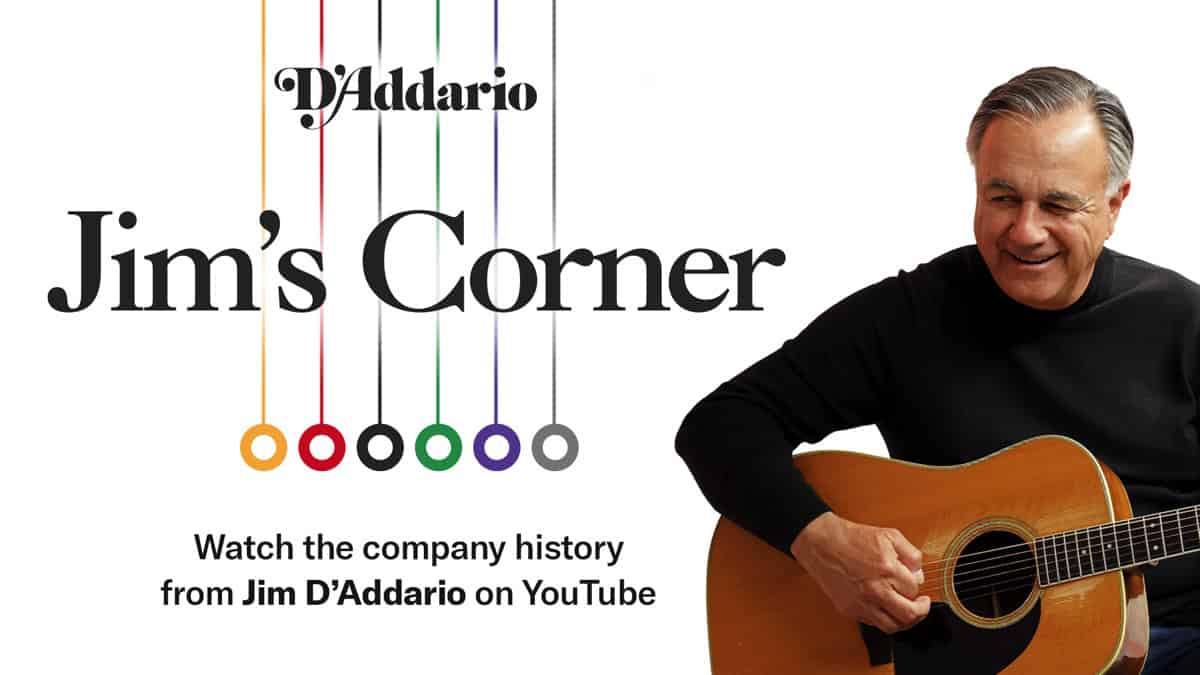Latest
Want to Become a True Musician? Avoid Behaving Like a Dilettante!
If the word Dilettante sounds strange to some of you, here is a classical dictionary definition:
“Dilettante comes from the Italian word Dilettare, “to delight.” Its connotation is that someone enjoys doing something, but does not take it seriously enough to become a professional at it. Most often used in relation to the arts and often is used as a critical way of describing someone who simply dabbles in the arts and lacks the discipline to perfect their skill.”
In fact I will extend that definition a little bit and bring it more to reality in my own words.
A Dilettante is somebody you don’t have to confuse with the general public or the general audience that have the right to express their opinion whenever they want and how they want. The Dilettante is a person who usually, but not always, keeps a sense of frustration inside him. This sense of frustration makes him feel always insecure, and this insecurity usually comes from his lack of skills, opportunities or discipline…. and mostly from his enormous desire to have become a True Musician and never being able to achieve that.
It’s not a coincidence that those guys usually know much more about music trivia than most of the musicians. When they are “Wealthy Dilettantes”, they usually have the best music collections around, the best amps, and the best instruments. Many times they are the ones who own the best instrument collections including rare editions, etc. Even though they dedicated their life to another profession (usually not by choice), you can find in their houses amazing studios with the cutting edge technology in them. They are experts in knowing names, dates, brands, models, etc. way better than any musician.
What’s the reason for that? Well, for me it seems really obvious… the reason is a matter of “Compensating”…. it’s like the short guy with the huge car… if you know what I mean. For me, the best example of a redeemed “Wealthy Dilettante” is the “Maecenas”.
When the Dilettante is not a wealthy one, he usually manages his ways for “Compensating”, like for example trying at any time (consciously or unconsciously) to find all the failures, mistakes and inabilities as possible on True Musician’s performances, even though they will never be able to play more than 10% than the guy they are talking about. It really doesn’t matter; this urge they have is stronger than their will. It’s fair to add that the “Wealthy Dilettante” is also a candidate to fall into the same sick pattern.
The Dilettante (wealthy or not) needs to destroy… whenever you read any destructive comment in any media (Youtube, forums, etc.), those opinions will always be coming from a Dilettante, and will never come from a True Musician. And of course 99% of the time those destructive comments will be anonymous…. does this sounds familiar to you?
Would you imagine for example Pat Metheny saying that a Patitucci solo is a piece of crap? Of course not, as a musician like Pat doesn’t have the time and the dark energy for something like that, and of course he won’t even think something like that about such a great musician.
But let’s suppose he would think that, he still wouldn’t write such negative things as he knows by his own experience how hard is to make and to play music, and how hard is to dedicate a life to music, so he will respect the artist and won’t say anything that could be destructive or at least non-constructive.
In fact what a True Musician like him or any other musician at this level would say if they found any “not very good performance” in any media, would always be constructive because of the reasons I mentioned before. They will try to find all the positive aspects in there… where is the potential, and if they find something they don’t like, they will always express that idea in a constructive way saying that this can be improved by doing this or that, never destructing anybody as I said before… that’s Dilettante’s Business.
It’s amazing how NOBODY escapes from the Dilettante’s reach. Take a tour on Youtube for example and you will see how amazing musicians like Dave Weckl, Chick Corea, Stevie Wonder, Maxim Vengerov, Claudio Arrau, Daniel Barenboim, Jean Luc Ponty, etc., and eventually all the great musicians you can think about, are always being battered, many times in extremely disrespectful ways by the Dilettantes.
The other thing that the Dilettante loves to do is to COMPARE musician “A” with musician “B”, transforming himself into a sort of gambler finding who’s better so to be able to bid on the fastest horse. True Musicians are not horses that are competing against the other one so to entertain the Dilettantes… True Musicians are human beings trying hard to make ART, True Musicians are not comparing themselves with the musician next door in any form… and this is again Dilettante’s business.
So this article is just some humble advice to help you construct a solid identity as a musician. If you want to achieve the goal of becoming a True Musician, start right now by avoiding falling into this destructive behavior, and it’ll be way better if you do so at a young age. If after reading this article you come to the conclusion that you have already fallen into this toxic pattern on some occasions, try to correct that ASAP… it’s never too late. As I said on this article’s title…
Want to Become a True Musician? Avoid Behaving Like a Dilettante!
See you guys on my next article!
Gear News
Gear News: Positive Grid Launches Spark 2

Positive Grid launches Spark 2, the next evolution of their cutting-edge smart guitar practice amplifiers and Bluetooth® speakers.
Engineered for acoustic, electric guitar, and bass, Spark 2 delivers an immersive practice and playing experience. Enjoy detailed sound and an all-new upgraded speaker design powered by Positive Grid’s exclusive Sonic IQ Computational Audio technology. With an onboard creative looper, optional battery power, and intuitive AI features for tone exploration and practice, Spark 2 is the gateway to a musical experience that goes beyond expectations.
Proprietary Audio and Advanced Technology
Spark 2 represents a leap forward in amplifier design. It integrates a new DSP amp modeling engine with double the processing power, and at 50 Watts, it packs 25% more volume than the original. Positive Grid’s proprietary Sonic IQ Computational Audio delivers incredibly detailed and dynamic sound. New HD amp models, enhanced by multi-band dynamic range compression and virtual bass augmentation, redefine the sonic landscape.
Equipped with two premium FRFR speakers and reflex ports, Spark 2 offers wide stereo imaging and broader frequency response, ensuring refined bass and clear, immersive sound.
Built-In Creative Looper
Spark 2’s built-in Groove Looper features hundreds of hyper-realistic drum tracks. From basic loops to multi-layered soundscapes or the ultimate jam session, this intuitive tool inspires endless creativity. Onboard amp controls provide quick, on-the-go looping functionality.
AI-Powered Tone and Smart Jam
Spark AI revolutionizes tone exploration. Describe any desired tone in the Spark app – from practical to outlandish – and Spark AI will suggest tones to audition or download. The more it’s used, the smarter it gets, delivering the perfect sound.
Additional smart features make it easy to practice, learn new songs and improve playing skills. Smart Jam listens to the user’s playing style and generates accompanying bass and drum parts, while Auto Chords analyzes any song streamed and displays the guitar chords in real time, to make learning and practicing new songs easier than ever.
Enhanced Hardware Design and Portability
Spark 2 allows for storing up to eight customizable presets directly on the amp for quick access to favorite sounds. Perfect the tone with large, visible onboard controls for looper, EQ, gain, reverb, and more.
Designed for convenience, an optional rechargeable battery provides up to 12 hours of playtime for on-the-go sessions. The new double-thick strap and durable build ensure easy and secure transport. Spark 2 is also Bluetooth® ready, allowing for music streaming and jamming along with favorite tracks anytime, anywhere.
Multiple Outputs and Advanced Features
Spark 2 offers versatile connectivity with a headphone out for private practice, stereo line outs for external audio sources, and a USB-C port which enables it to function as an audio interface. WiFi-enabled, Spark 2 allows convenient over-the-air firmware updates, keeping the amp up to date with the latest features and improvements.
“I’ve used a ton of practice amps while touring the world for over 38 years and it was always just a technical, bland exercise,” says guitar virtuoso, singer-songwriter and producer Nuno Bettencourt. “Spark 2 is like taking Madison Square Garden wherever you go – epic and versatile.”
Color Options
Available in Pearl or Black finish with a dark weave grille and premium finish.
Special Event, Upgrade Pricing & Availability
Join the special live premiere event featuring Nuno Bettencourt and surprise guests on August 1, 2024, at 8:00 am PT/11:00 am ET. Visit positivegrid.com/pages/livestream for more details and to sign up for a reminder.
Regularly USD $299, Spark 2 will be available at special early bird pricing during the pre-order period. Registered Spark 40 owners can also receive exclusive upgrade pricing.
For more information and to sign up for pre-order alerts, visit positivegrid.com/products/spark-2.
Gear Reviews
Gear Review: Exploring the Joyo Gloam – Sub Octave Fuzz Pedal for Bass

A review of the Joyo Gloam – Sub Octave Fuzz Pedal for Bass
Disclaimer: This pedal was kindly provided by Joyo for the purpose of this review. However, this does not influence our opinions or the content of our reviews. We strive to provide honest, unbiased, and accurate assessments to ensure that our readers receive truthful and helpful information.
Introduction: The Joyo Gloam is a sub-octave fuzz pedal specifically designed for bass players, combining modern sub-octave effects with rich fuzz tones. With two independently controlled circuits, the Gloam aims to provide a versatile range of sounds, from deep, aggressive fuzz to Moog-like synth effects. This review will explore the Gloam’s specifications, controls, and overall performance, highlighting both its strengths and areas for improvement.
Specifications:
- Dimensions: 130 * 110 * 50 mm
- Weight: 403g
- Working Voltage: DC 9V
- Controls: The Joyo Gloam features a comprehensive control set designed to provide bassists with a wide range of tonal options:
- Dry Tone: Adjusts the tone of the clean signal.
- Dry Volume: Controls the volume of the clean signal.
- Sub Octave Volume: Adjusts the volume of the sub octave signal.
- Gain: Controls the amount of gain in the fuzz circuit.
- Fuzz: Adjusts the intensity of the fuzz effect.
- Bass: Controls the bass frequencies in the fuzz circuit.
- Treble: Adjusts the treble frequencies in the fuzz circuit.
- Fuzz Mode Switch: Switches between two different fuzz modes.
- Dry Tone Frequency Switch: Selects between two different frequency points for the dry tone.
Performance: The Joyo Gloam excels in its dual-circuit design, offering both a sub octave and a fuzz channel that can be controlled individually. However, it’s important to note that the octaver cannot be used without the fuzz circuit activated; the only way to solo the octaver is by turning down the fuzz while both channels are engaged.
Fuzz Circuit: The fuzz circuit includes standard controls such as gain, volume, bass, and treble, along with a fuzz mode switch that toggles between two distinct fuzz modes. While one of the fuzz modes is highly usable and delivers a rich, aggressive tone, the other mode falls short and is less practical for most applications.
Octaver Circuit: The octaver circuit features controls for sub octave volume, clean volume, and clean tone, along with a dry tone frequency switch that provides two different frequency options. This allows for significant tonal versatility, enabling bassists to fine-tune their sound to match their preferences. Despite its limitation of being tied to the fuzz circuit, the octaver produces a deep, balanced sound that stands out.
Combined Effect: When used together, the fuzz and octaver circuits create a wide range of sounds, from classic, aggressive fuzz to synth-like tones reminiscent of a Moog synthesizer. This combination makes the Gloam a powerful tool for bassists seeking to experiment with their sound and achieve unique, textured tones.
Pros:
- Versatile Controls: Extensive control options for both fuzz and octaver circuits.
- Rich Tones: Delivers deep, aggressive fuzz and balanced octaver sounds.
- Sturdy Construction: Durable build quality ensures reliability.
- Wide Range of Sounds: Capable of producing everything from classic fuzz to synth-like effects.
Cons:
- Unusable Fuzz Mode: One of the fuzz modes is less practical.
- Dependent Octaver: Octaver cannot be used independently of the fuzz circuit.
Conclusion: In conclusion, the Joyo Gloam sub-octave fuzz pedal offers a versatile and powerful option for bassists looking to expand their tonal palette. Despite some flaws, the Gloam delivers impressive sounds and flexibility. Its combination of rich fuzz and deep octaver tones, coupled with a sturdy construction, makes it a valuable addition to any bassist’s pedalboard. For those seeking a modern bass distortion with the added depth of sub-octave effects, the Joyo Gloam is a compelling choice for a very compelling price.
Visit online at joyoaudio.com/product/281.html
Latest
July 22 Edition – This Week’s Top 10 Basses on Instagram

Check out our top 10 favorite basses on Instagram this week…
Click to follow Bass Musician on Instagram @bassmusicianmag
FEATURED @jermsbass @ramabass.ok @adamovicbasses @mgbassguitars @marleaux_bassguitars @overwaterbasses @mauriziouberbasses @elrickbasses @zemaitisguitars @sandbergguitars
Gear News
Behind the Strings: D’Addario’s Story Comes to Life in “Jim’s Corner” YouTube Series

Behind the Strings – Jim’s Corner…
D’Addario & Co. proudly announces the launch of “Jim’s Corner,” a captivating new YouTube series telling the 400-year-old story of the D’Addario family creating the world’s largest music accessories company. This series features Jim D’Addario, Founder and Director of Innovation at D’Addario and Co., sharing his family’s remarkable journey from 17th century Italy to a 21st century global enterprise.
In the first four episodes now available, Jim D’Addario takes viewers back to the beginning, making strings from animal guts and knotting ukulele wire as a family around the television. Countless generations carried the passion forward until the 1970s when the company made it official and never looked back. Jim recounts the creation of strings that inspired legendary riffs, including one by The Who, the launch of Darco strings, the merger with Martin Guitars and the company’s humble beginnings with his wife, Janet and brother, John. Jim D’Addario’s firsthand accounts provide an intimate and personal perspective on the milestones and challenges that shaped D’Addario into the revered brand it is today.
Episode Highlights:
- Episode 1: The Early Days in Italy and the Move to America
- Episode 2: Inspiring Iconic Riffs and Legendary Partnerships
- Episode 3: Launching Darco Strings and Merging with Martin Guitars
- Episode 4: Building the D’Addario and Co. Legacy
Watch & Subscribe Now:
Join us in celebrating this incredible legacy by watching the first four episodes of “Jim’s Corner” on YouTube. New episodes will drop every month so please subscribe to our channel to ensure you don’t miss any future episodes and exclusive content from D’Addario & Co.: www.youtube.com/@daddarioandco
Gear News
Gear News: Aguilar Amplification Unveils Limited Edition NYC Gold Skyline Tone Hammer Preamp

Aguilar Amplification announces the release of the Limited Edition NYC Gold Skyline Tone Hammer Preamp pedal. Hand serialized 1-100, this exclusive edition celebrates Aguilar’s deep roots in New York City with a tribute to its iconic landmarks and vibrant spirit.
Born in the heart of NYC and raised on the road, the Tone Hammer Preamp DI has been an indispensable tool for bassists seeking inspiring tone and versatility. The new Limited Edition Gold NYC builds on this legacy with striking custom graphics encapsulating the essence of New York City. Featuring iconic landmarks from the Statue of Liberty to the Empire State Building, this pedal is not just a tool, but a piece of art embodying the soul of the city. Each unit features a sharp platinum silkscreen over a stunning matte gold sparkle finish, that is as visually captivating as it is sonically powerful.
The Tone Hammer is an essential preamp/direct box for every bassist’s toolbox. The Tone Hammer features fully sweepable midrange frequencies in addition to bass and treble controls. With the Tone Hammer’s pristine D.I. players are set for either studio or stage. To give this tone shaping unit the ultimate flexibility we introduce our proprietary Adaptive Gain Shaping circuitry (AGS). AGS allows the player to kick in an additional gain structure and EQ with the “stomp” of a button. You can go from modern slap sounds to vintage or overdriven. 18-volt operation gives the Tone Hammer plenty of headroom to reproduce the most dynamic playing styles. Separate gain and master controls allow players to dial in just the right gain structure for any instrument.
Aguilar Amplification’s Jordan Cortese adds, “With only 100 hand-numbered units available, this third iteration of our NYC edition Tone Hammer is a collector’s dream. “It’s a homage to our city’s monumental influence on music and culture and celebrates the craftsmanship and the story of Aguilar”.
Street price: $299.99 For more information, please visit www.aguilaramp.com






















